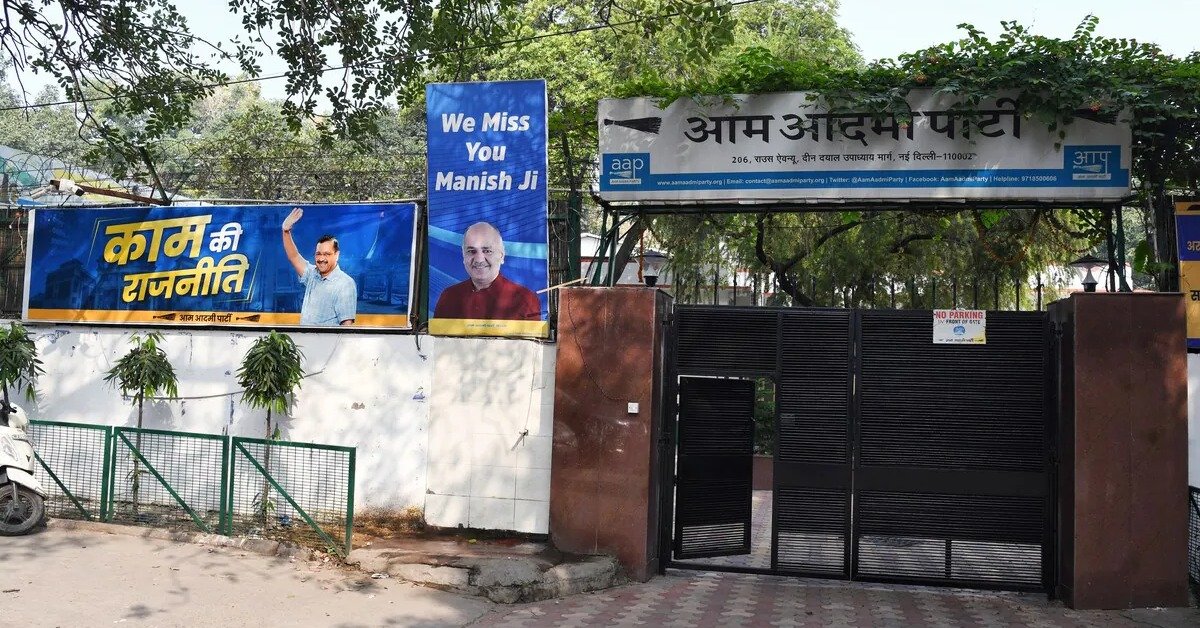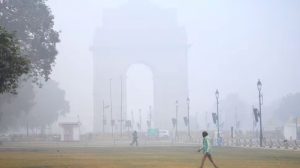Supreme Court Extends Deadline Given To AAP To Vacate Delhi Office

Summary: The Supreme Court of India has extended the deadline for the Aam Aadmi Party (AAP) to vacate its office at Rouse Avenue in New Delhi from June 15 to August 10. This extension aims to allow the Delhi High Court to use the plot for expanding judicial infrastructure. Initially, the court directed AAP to vacate by June 15, as the land was allocated to the High Court in 2020 to address a shortage of courtrooms.
Senior Advocate Abhishek Singhvi, representing AAP, requested more time, which the court granted as a final opportunity. The decision involves a legal history where AAP’s allotment was revoked in 2017 but later challenged in court. AAP argues it deserves space in New Delhi due to its status as a national party, while the Solicitor General labels the party as an “encroacher.” The extension allows AAP to seek an alternative location while enabling the High Court’s expansion plans to proceed.
In a recent development, the Supreme Court of India has granted an extension to the Aam Aadmi Party (AAP) to vacate its office at Rouse Avenue in New Delhi. This decision comes after the court had initially set a deadline of June 15, which has now been extended to August 10.
The Supreme Court’s earlier directive, issued on March 4, mandated that the AAP vacate its office to facilitate the expansion of judicial infrastructure for the Delhi High Court. The plot, originally allocated to the High Court in 2020, is intended to address a critical shortage of courtrooms in the national capital. Lawyer K Parmeshwar, acting as amicus curiae, highlighted the urgency of the situation, stating, “We (the high court) are in dire conditions and now we may have to rent premises to accommodate the newly-recruited judicial officers, who are undergoing training presently.”
During the hearing, Senior Advocate Abhishek Singhvi, representing AAP, requested an extension of the deadline. The vacation bench, comprising Justices Vikram Nath and Sandeep Mehta, agreed to extend the deadline until August 10, emphasizing that this would be the final opportunity for the party to vacate the premises. The bench ordered, “Considering facts and circumstances and as the last opportunity, we extend the time till August 10, 2024, on an undertaking to be given by the applicant (AAP) within a week before the registry of this court that they shall hand over vacant and peaceful possession by August 10, 2024.”
The backdrop of this case involves a complex legal and administrative history. The AAP office was officially allotted by the Government of National Capital Territory of Delhi, but this allotment was revoked in June 2017 by the Public Works Department of the Delhi government, following directions from the Lieutenant Governor of Delhi. Despite this, the AAP has maintained that their occupation is lawful, pointing to a High Court decision on August 23, 2017, which set aside the notice of cancellation of allotment.
Singhvi argued that as one of the six national parties in India, AAP is entitled to office space in the New Delhi municipal area, reflecting its status. He claimed, “They are telling us as a national party we get nothing. I’m given (land in) Badarpur, while everyone else is in better places. A particular government does not want me to be flourishing and working.” On the other hand, Solicitor General Tushar Mehta labeled the AAP as an “encroacher,” asserting that the land allotment was rightfully revoked.
The ongoing dispute underscores the broader issues related to the allocation and use of public land in the capital, especially in the context of expanding judicial infrastructure. As the deadline looms, the AAP will need to find an alternative location for its operations while complying with the Supreme Court’s directive, ensuring that the expansion plans for the Delhi High Court can proceed without further delay.
Last Updated on Monday, June 10, 2024 4:12 pm by Delhi News Wire Team


